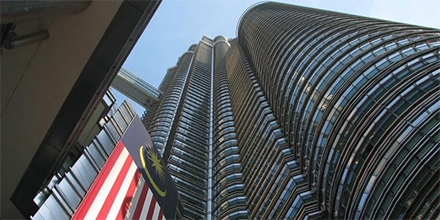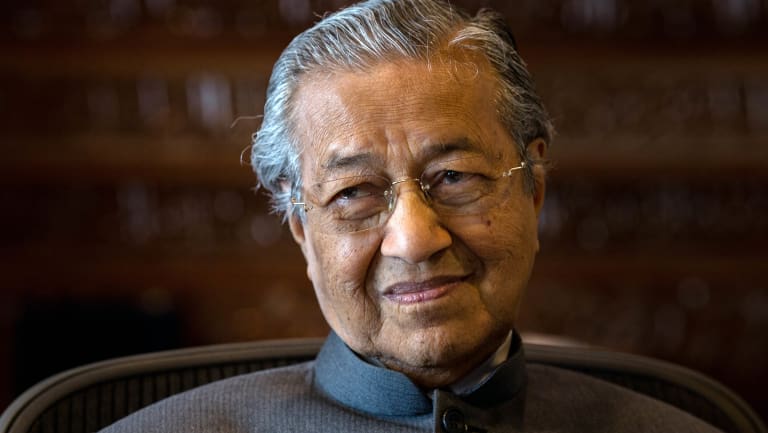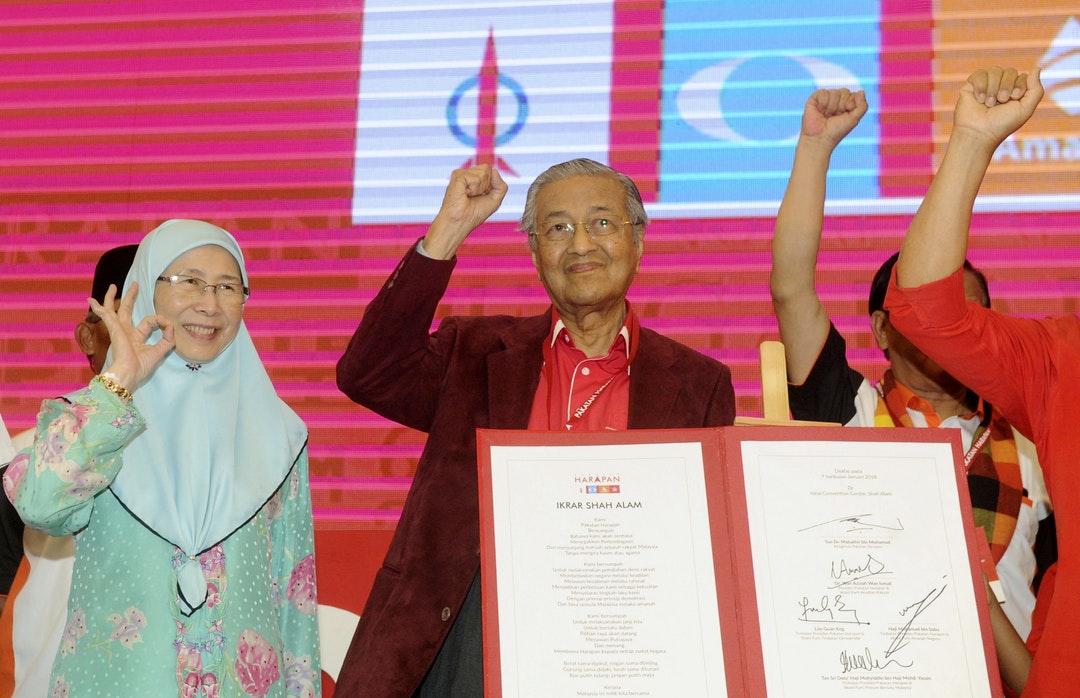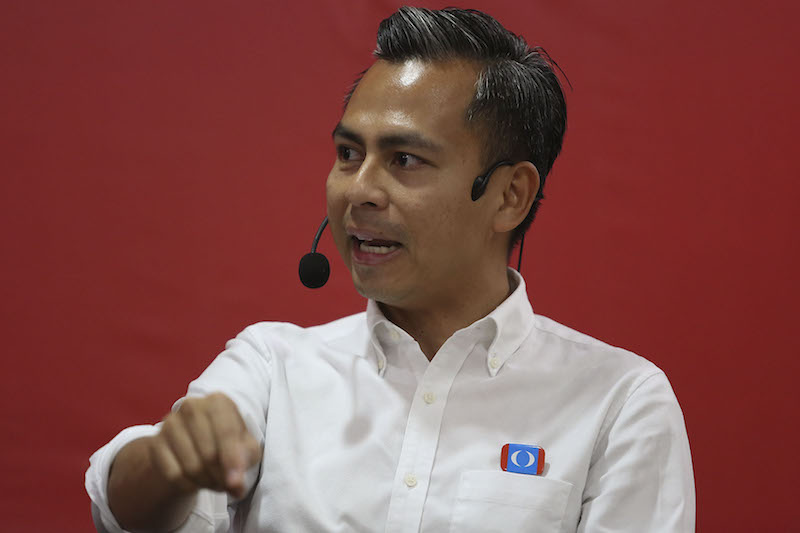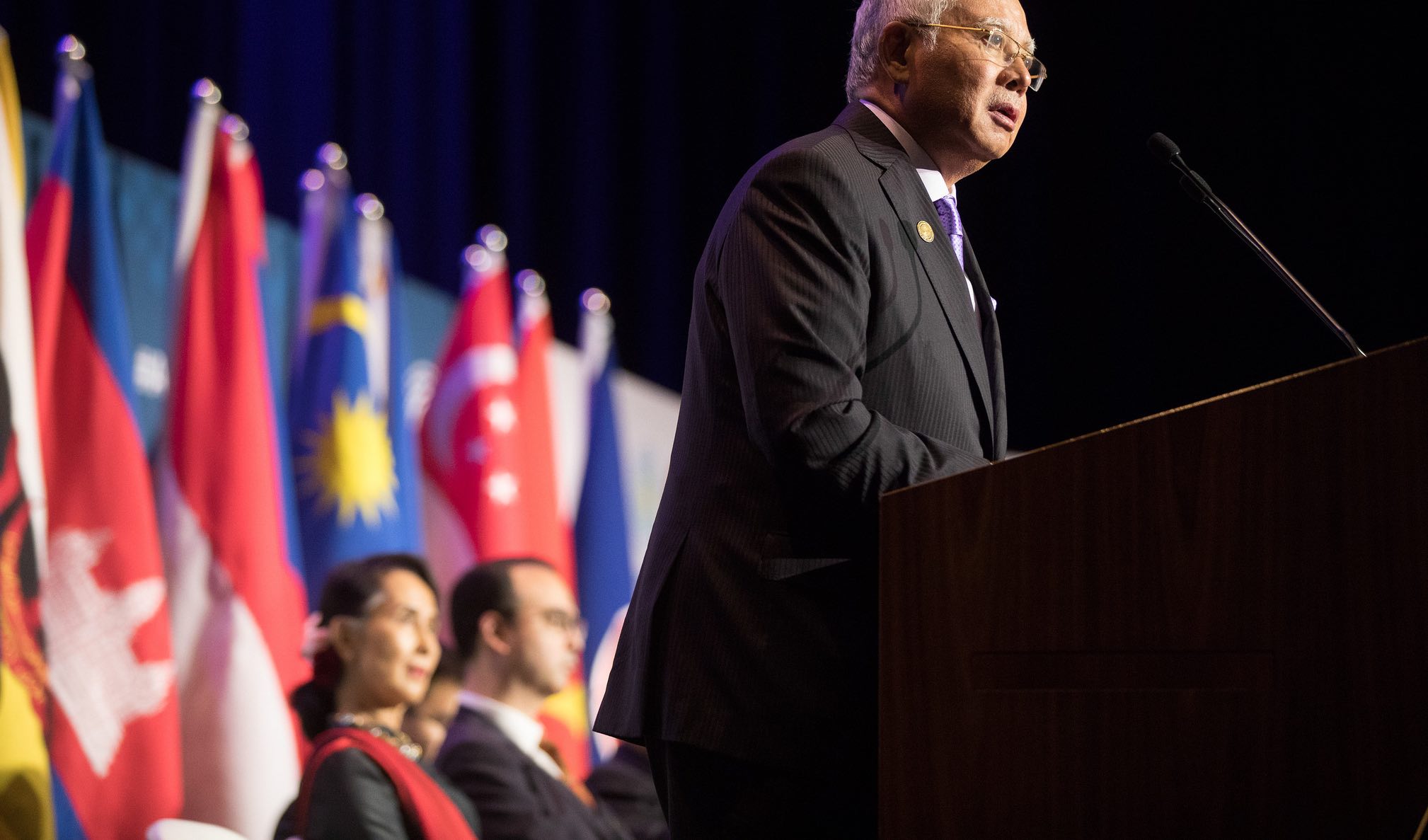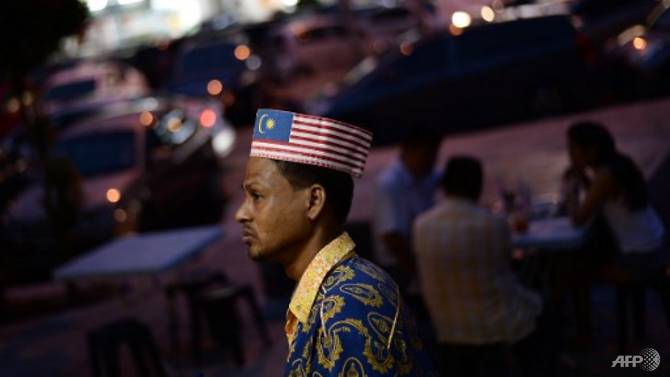Campaign image by Invoke Malaysia circulating Whatsapp asks: “Quiz: Between these two uncles, which one gets a GST exemption?” Photo: Inside Story
Today Inside Story published an essay I wrote on the presence of ‘China’ and the ‘Chinese’ in the Malaysian general election, for which the official eleven-day campaign started this weekend. The government’s line is that the opposition, whose Democratic Action Party has a large ethnic Chinese membership, represents a risk of the Chinese takeover of Malay Muslim, and therefore Malaysian, sovereignty. The opposition parties are working to flip this argument so it hurts Barisan instead, by pointing to the external Chinese threat it argues resides in the People’s Republic of China, and its rise in the region.
One Malaysia, Two Chinas
Malaysia’s official eleven-day election campaign kicked off this weekend as candidates presented themselves for nomination ahead of voting on 9 May. The Merdeka Centre and other pollsters are predicting a win for Najib Razak and his ruling Barisan Nasional (National Front) coalition, hardly a bold prediction after thirteen similar wins stretching back to Malaya’s transition to independence in the mid 1950s. What makes this election different is a focus on the role of two Chinas — the Big China of development loans and foreign policy deals and the local Chinese community, which tends to support the opposition.
As it does at every election, the government has shaped the contest to minimise competition from the opposition parties, this time grouped in a coalition called the Pakatan Harapan, or Alliance of Hope. The short campaign and the weekday vote is designed to keep turnout low; revised electoral boundaries carry on Malaysia’s rich tradition of malapportionment and gerrymandering; and a new “fake news” law is clearly intended to constrain political discussion by Malaysians on social media and in the foreign press.
Not surprisingly, Najib himself has predicted an increased majority, not least in a recent interview with Bloomberg, his first with a foreign media outlet for more than three years. The PM’s boycott of foreign media began when the 1MDB scandal first erupted in 2015 with allegations that a state investment fund led by Najib had lost billions of dollars and racked up billions more in debt. The fund is still being probed in the United States, but similar investigations in Malaysia have found Najib innocent of all wrongdoing, and his UMNO party, which dominates Barisan Nasional, has closed ranks around him. Electorally and institutionally speaking, Najib appears to have his bases covered, at least within the country he leads.
The mood, meanwhile, wavers somewhere between indifference and insolence. When I asked political observers and insiders in Kuala Lumpur about the election recently, they responded with sighs and eyerolls before sharing their views. Beyond the capital, seasoned observers are reporting unusually silent audiences at the usually lively opposition campaign rallies known as ceramah, their faces unreadable. But this subdued reaction hasn’t stopped Pakatan’s campaign from circulating images of well-attended events accompanied by images of empty chairs at Barisan ceramah.
At one of Barisan’s events, to which taxi drivers were coaxed with a promise of free fuel cards to the value of 800 ringgit (a bit less than half the average monthly wage), the crowd declined to be stage-managed by officials, kicking over barriers and heading for the counter. Nobody seems to be performing as expected, except when they lament the spiralling cost of living. Food prices have soared, and the price of the widely eaten kembong — Indian mackerel, now seen as a cost-of-living bellwether — has more than doubled since 2015.
Read more

